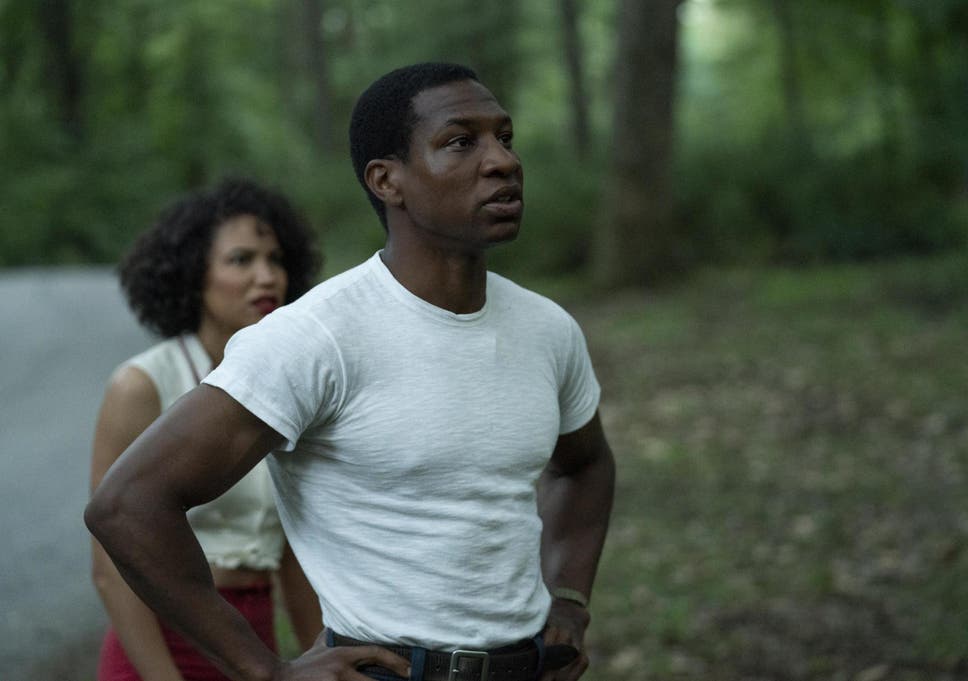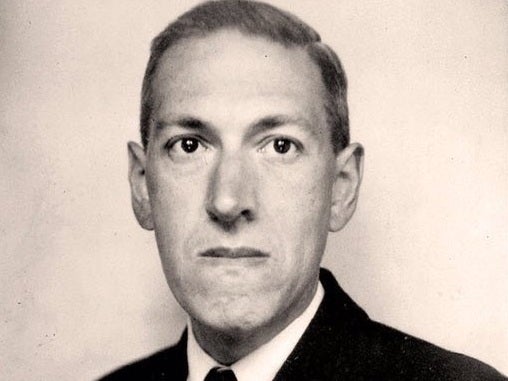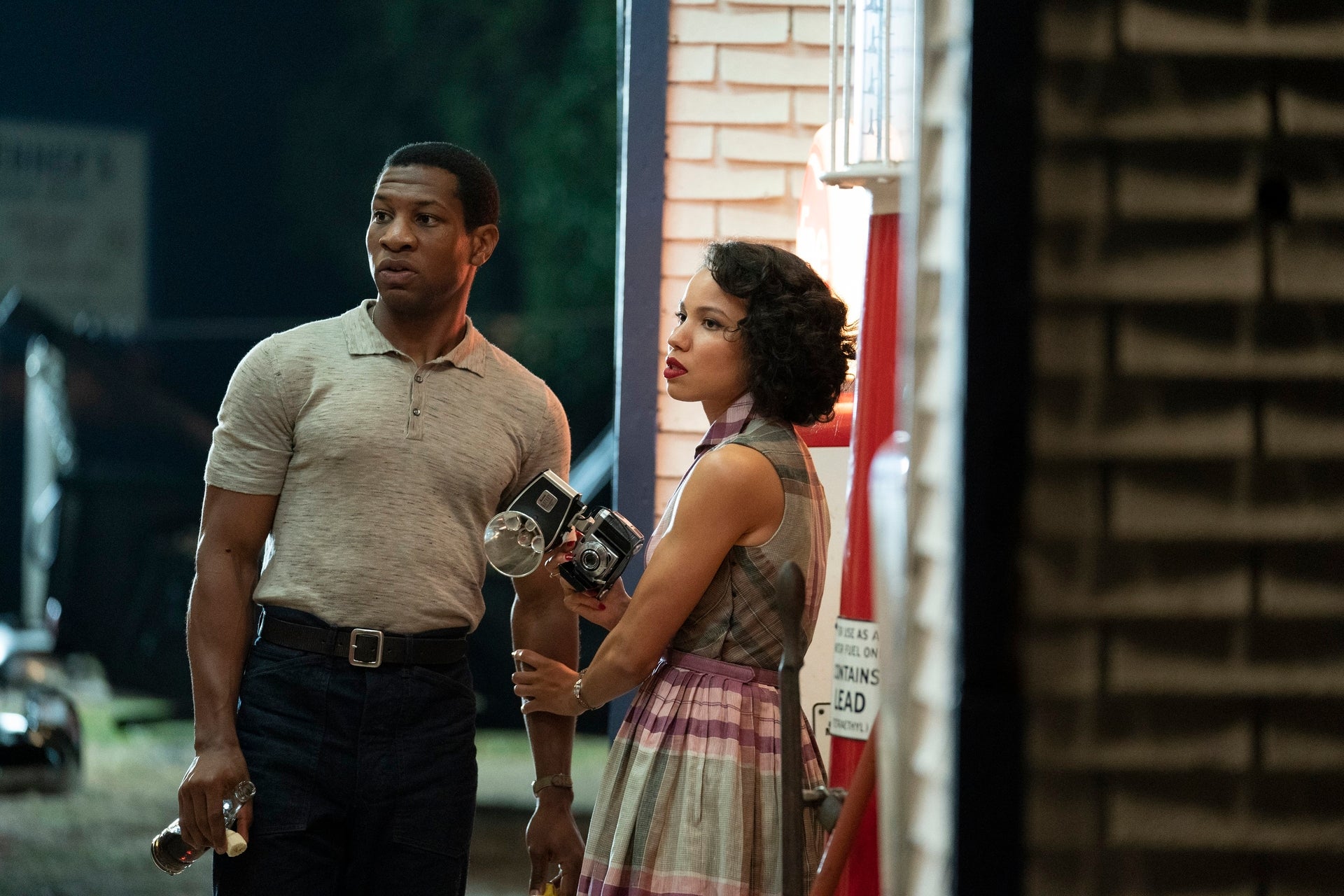Lovecraft Country author: ‘I needed a bridge between paranormal horror and the horrors of racism’
The writer of ‘Lovecraft Country’, Matt Ruff, talks to Ed Power about the TV adaptation of his novel, which tells the story of a black American family battling racist white occultists, and why it’s not set in the South – ‘the whole country was incredibly racist’
As a long-haired undergraduate at Cornell University in upstate New York, writer Matt Ruff loved to unwind by taking leisurely walks in the wilderness. He’d ramble off campus, through woods and scrubland. Occasionally, a pick-up truck would cruise by. There would be a gun-rack in the front, a few big dogs in the back. The driver, often wearing a baseball cap, sometimes chugging a beer, might eyeball him and move on. Ruff, a white kid from Queens, barely noticed.
“I told my friend Joe about it,” recalls Ruff, who’s now 54. “I said, ‘You should try this.’ He just laughed. He was like, ‘I’m black. If I go walking around there, I’m not going to make it to graduation.’ This had honestly not occurred to me before. That was what got me started on what eventually became Lovecraft Country.”
In Ruff’s 2016 novel – now adapted into a blockbusting HBO/Sky Atlantic drama – an African American family in 1950s Chicago is drawn into a life-or-death struggle with evil occultists. The twist Ruff weaves into the story is to present the threat posed by the supernatural as very much secondary to that of institutional racism in America.
“In 2007, I had been invited to submit original ideas for a TV series to producers,” he says from his home in Seattle. “One of the ideas I came up with was a show kind of like The X-Files. You would have this recurring cast of characters having weekly paranormal adventures. But instead of white FBI agents in the 1990s, it was going to be a black family in the 1950s.
“The idea was to combine these weekly paranormal terrors with the more mundane horrors of life in the US at a time when segregation was still legal. Which is the bigger threat? The monster under the bed or the white policeman pulling you over on a road somewhere?”
Lovecraft Country stars Jonathan Majors as Atticus Black, an African-American sci-fi geek from Chicago. When his father goes missing, Atticus follows the trail leading to Ardham, a mysterious town in New England. He sets off with friend Letitia (Jurnee Smollett) and uncle George (Courtney B Vance). En route, their journey is interrupted by run-ins with racist police and violent townspeople. Awaiting them in Ardham, meanwhile, is a supernatural conspiracy fronted by glamorous cultist Christina Braithwaite (Mad Max: Fury Road’s Abbey Lee).
The “Lovecraft” of the title refers to the cult – and increasingly controversial – cosmic horror author. HP Lovecraft died in obscurity in 1937 at age 46. However, his stature has grown steadily in the intervening decades. His most famous creation, octopoid “Great Old One” Cthulhu, has, in particular, become a sort of geek culture mascot. You can buy Cthulhu teddy bears and T-shirts – even “Cthulhu for President” bumper stickers.
But in the past 10 years, especially, Lovecraft’s racist opinions have come under new scrutiny. Even for his time, Lovecraft’s views were regarded as extreme. He admired Hitler (“he’s a clown but god I like the boy”) and used the N-word in his verse. He also believed in segregation, cautioning “only pain and disaster [would] come from the mingling of black and white”. For Ruff, writing about supernatural terror and the wickedness of racism, Lovecraft was an obvious peg on which to hang the endeavour.
“Lovecraft came in through the back door,” he says. “I needed a thematic bridge between paranormal horror and the horrors of racism. And he, of course, is the best for that.”
The TV executives passed. So Ruff turned the idea into a book. It became an immediate sensation, and there was huge interest from the outset from Hollywood. Still, he was surprised when his agent at CAA revealed Jordan Peele, one half of sketch comedy duo Key and Peele, was eager to adapt the novel. What did a comedian know about Lovecraft?
“I was told he was looking to break into horror. I got on the phone with Jordan and Misha Green, the showrunner. At that time, I was more excited to talk to Misha as I was familiar with her earlier series Underground [about the Underground Railroad in Antebellum Georgia]. We had a great conversation. Not long after that I saw the first trailer for Get Out. Right away I was like, ‘Oh, of course – I completely understand why he wants to do Lovecraft Country.’”
Get Out is one of the greatest horror movies of the past 25 years. The 2017 chiller, written and directed by Peele, doubles as a devastating satire of entrenched prejudices in the United States. It stars Daniel Kaluuya as a young African-American man who gets more than he bargained for when he meets his white girlfriend’s wealthy parents. As coincidence would have it, they live in the same upstate New York rural idyll where Ruff used to take his walks at Cornell.
“I saw that he was doing a similar thing in the present day to what I’m doing in 1954. The success of Get Out is what paved the way for Jordan to do whatever he wanted next. That really is what made Lovecraft Country happen.”
One thing to say about Lovecraft Country is that the title is ever so slightly misleading. There are supernatural entities, some clearly inspired by Lovecraft. And Cthulhu himself has an (uncredited) surprise cameo on screen. But Ruff’s universe exists adjacent to Lovecraft’s detailed mythology and its pantheon of godlike entities such as Hastur, Dagon and Nyarlathotep. If you’re expecting Call of Cthulhu: the TV Series you may be slightly nonplussed. Lovecraft Country is a lot of things. But it isn’t that.
“Lovecraft has become a lightning rod. But he’s not the only example of [racism in genre writing],” says Ruff. “Part of what I tried to dramatise in the book is the difficulty black nerds had in loving a genre that was constantly ignoring them.” Or worse. “You have Edgar Rice Burroughs with John Carter – a Confederate soldier whose slaves loved him. Even Jekyll and Hyde – Hyde’s not black, but there is an implication he’s Eastern European.”
As a supernatural caper, Lovecraft Country is hugely entertaining. However, it is in its depiction of the mundanity of racism that it really lands its punches. Two black sisters moving into a white suburb of Chicago are met with burning crosses on their lawn. A drive through idyllic New England takes a turn for the terrifying when the local sheriff explains that Atticus and his friends’ lives are forfeit if they don’t leave his county by sundown.
One of the points the series makes is that racism wasn’t just a “Southern” phenomenon. From sea to shining sea it was in the marrow of the nation.
“People have this very strong notion that the South was racist and everywhere else kind of OK,” says Ruff. “No, the whole country was incredibly racist. You didn’t really need the Green Book [a list of services and places relatively friendly to African Americans] when you were travelling in the South because there were extensive signs telling you where you could and couldn’t go. In other parts of America, you had the same level of discrimination, but people were cagey about it. They would make up excuses why you couldn’t stay at their motel rather than telling you flat-out ‘no’.”
Lovecraft Country arrives at a timely moment, as the push to vote out of office the most racially divisive American president in recent history gathers momentum and Black Lives Matter protests continue. “I mean yeah… which is unfortunate,” says Ruff. “But I have to say, in almost any year in America something is going to happen that would have made it timely.”
Lovecraft’s racism was waved away for decades. But the conversation around his legacy has now changed. In 2016, the year Lovecraft Countrywas published, his likeness was finally removed from the World Fantasy Award trophy following an outcry from writers of colour. Since then, Lovecraft’s views on race have become central to the debate about his writing. However, Ruff does not believe Lovecraft is in danger of being “cancelled”.
“There will always be this big asterisk next to his name now. The thing is, his fiction still works. You don’t have to be white supremacist to get it. That sense of creeping dread – he was able to tap into a more universal human fear of difference and the unknown than the specific one he was thinking about [ie his fear of other races]. If it was just the racism he would already have been forgotten by now. Getting rid of Cthulhu, how would you even do that?”








Geen opmerkingen:
Een reactie posten